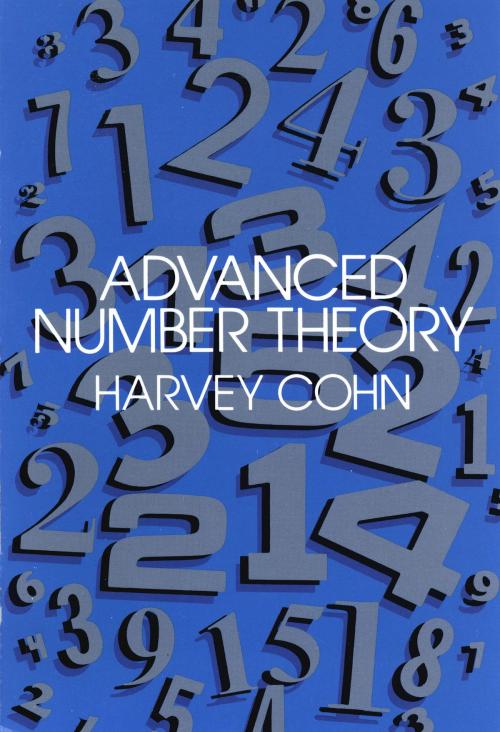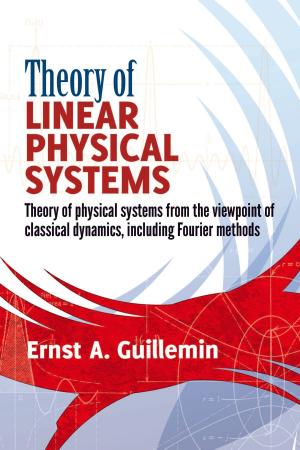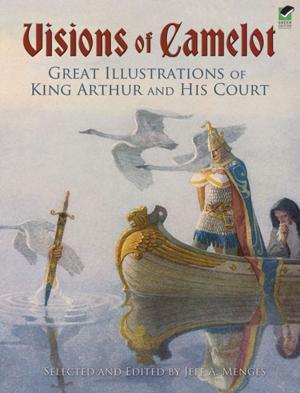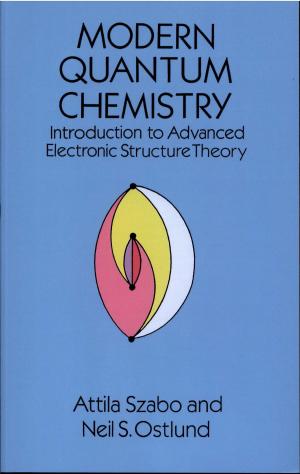| Author: | Harvey Cohn | ISBN: | 9780486149240 |
| Publisher: | Dover Publications | Publication: | May 4, 2012 |
| Imprint: | Dover Publications | Language: | English |
| Author: | Harvey Cohn |
| ISBN: | 9780486149240 |
| Publisher: | Dover Publications |
| Publication: | May 4, 2012 |
| Imprint: | Dover Publications |
| Language: | English |
"A very stimulating book ... in a class by itself." — American Mathematical*Monthly*
Advanced students, mathematicians and number theorists will welcome this stimulating treatment of advanced number theory, which approaches the complex topic of algebraic number theory from a historical standpoint, taking pains to show the reader how concepts, definitions and theories have evolved during the last two centuries. Moreover, the book abounds with numerical examples and more concrete, specific theorems than are found in most contemporary treatments of the subject.
The book is divided into three parts. Part I is concerned with background material — a synopsis of elementary number theory (including quadratic congruences and the Jacobi symbol), characters of residue class groups via the structure theorem for finite abelian groups, first notions of integral domains, modules and lattices, and such basis theorems as Kronecker's Basis Theorem for Abelian Groups.
Part II discusses ideal theory in quadratic fields, with chapters on unique factorization and units, unique factorization into ideals, norms and ideal classes (in particular, Minkowski's theorem), and class structure in quadratic fields. Applications of this material are made in Part III to class number formulas and primes in arithmetic progression, quadratic reciprocity in the rational domain and the relationship between quadratic forms and ideals, including the theory of composition, orders and genera. In a final concluding survey of more recent developments, Dr. Cohn takes up Cyclotomic Fields and Gaussian Sums, Class Fields and Global and Local Viewpoints.
In addition to numerous helpful diagrams and tables throughout the text, appendices, and an annotated bibliography, Advanced Number Theory also includes over 200 problems specially designed to stimulate the spirit of experimentation which has traditionally ruled number theory.
"A very stimulating book ... in a class by itself." — American Mathematical*Monthly*
Advanced students, mathematicians and number theorists will welcome this stimulating treatment of advanced number theory, which approaches the complex topic of algebraic number theory from a historical standpoint, taking pains to show the reader how concepts, definitions and theories have evolved during the last two centuries. Moreover, the book abounds with numerical examples and more concrete, specific theorems than are found in most contemporary treatments of the subject.
The book is divided into three parts. Part I is concerned with background material — a synopsis of elementary number theory (including quadratic congruences and the Jacobi symbol), characters of residue class groups via the structure theorem for finite abelian groups, first notions of integral domains, modules and lattices, and such basis theorems as Kronecker's Basis Theorem for Abelian Groups.
Part II discusses ideal theory in quadratic fields, with chapters on unique factorization and units, unique factorization into ideals, norms and ideal classes (in particular, Minkowski's theorem), and class structure in quadratic fields. Applications of this material are made in Part III to class number formulas and primes in arithmetic progression, quadratic reciprocity in the rational domain and the relationship between quadratic forms and ideals, including the theory of composition, orders and genera. In a final concluding survey of more recent developments, Dr. Cohn takes up Cyclotomic Fields and Gaussian Sums, Class Fields and Global and Local Viewpoints.
In addition to numerous helpful diagrams and tables throughout the text, appendices, and an annotated bibliography, Advanced Number Theory also includes over 200 problems specially designed to stimulate the spirit of experimentation which has traditionally ruled number theory.















